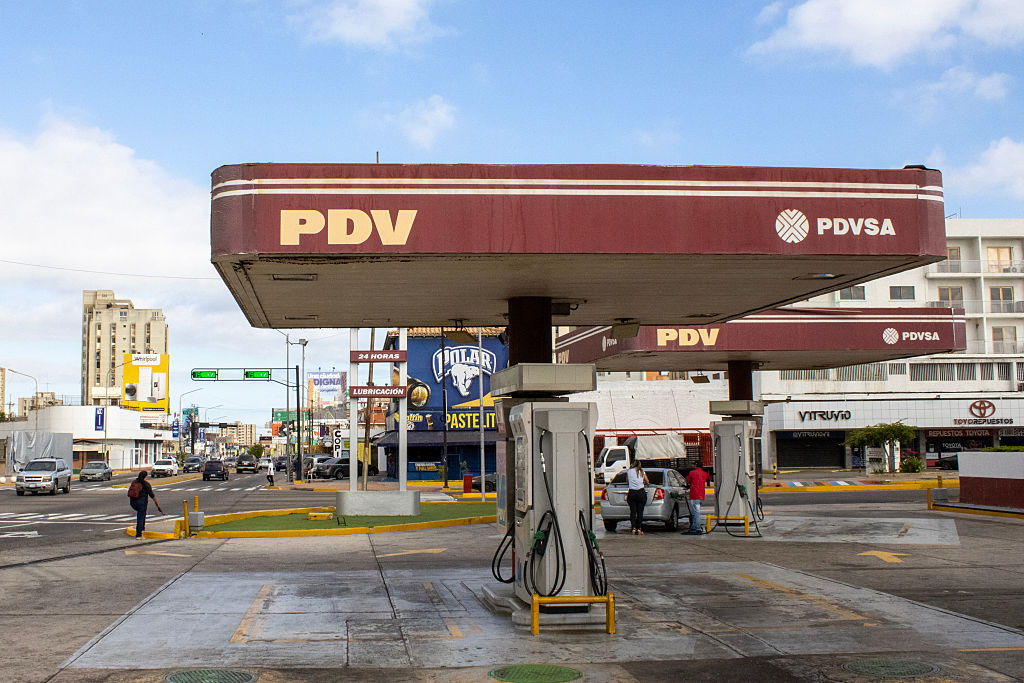Uncertanty Looms in Latin American Markets
Uncertanty Looms in Latin American Markets
Wall Street's September 29 tumble sent shockwaves through Latin American markets, which saw recovery on Tuesday. Officials in several countries, particularly Brazil, maintain that their economies stand better prepared for crisis than in the past as a result of lower public debt and diversification of export markets.
Legislators in Washington rejected a $700 billion bailout plan Monday, sending stocks into a freefall that dragged down markets across Latin America. While the Dow dropped nearly 770 points—the sharpest decline since the 1987 crash—Latin American stocks from Mexico City to São Paulo sank as well. Argentina’s Merval Index declined by 8.7 percent and Mexico’s IPC index dropped by 6 percent. Brazil’s Bovespa experienced the worst fall, sinking 9.75 percent. On Tuesday, these markets saw recovery while the world awaited a new proposal from Washingon for a financial rescue plan.
But in spite of the shaky nature of the global market on Monday, the Brazilian government remained optimistic. President Luiz Inácio Lula da Silva stated that his country’s economy remained stable and urged U.S. Congress to assume responsibility for the “casino created in the United States.” Central Bank President Henrique Meirelles compared the financial crisis facing the United States to pneumonia that could turn into tuberculosis while Brazil’s economy could catch—at worst—a bad cold because it stands more well prepared than in the past to handle global economic turbulence. Furthermore, the bank revised its GDP growth rate prediction for 2008 on Tuesday, raising the figure from 4.8 percent to 5 percent.
Brazilian officials may find they must employ optimism as global economic worries loom, writes Folha de São Paulo blogger Josías de Souza, but suggests that they could inject their declarations “with a pinch of realism.” A U.S.-led global economic downturn would affect Brazil and other Latin American countries with export-driven economies.
Mexico’s Treasury Secretary Agustin Carstens lowered his annual growth forecast for his country to 2.5 percent on Monday, saying the crisis would “undoubtedly” have an impact on Latin America. Roughly 80 percent of Mexican exports go to the United States. A Los Angeles Times article also points out that a financial crisis would have an impact on remittance flows sent by immigrants in the United States and Europe back to home communities in Latin America.
Still, Carstens echoed Brazilian officials’ about their own economy, saying Mexico is in better standing to handle a U.S. recession than in the past. A BBC report notes that both Mexico and Brazil command much lower public debt than in the previous two decades while many countries in the region can count on higher reserves and diversified export markets than in the past. Despite warning signs of rising inflation rates and lower commodity prices, “Most Latin American economies have shown resilience amid the U.S. market convulsions,” according to an in-depth report featured in Miami Herald’s “Business Monday.”
By Tuesday, several Latin American economies regained ground lost a day earlier. In Brazil, the real rose 3 percent and the Bovespa by 5.7 percent based on news that U.S. lawmakers would attempt to revive the financial rescue plan. Brazil's Finance Minister Guido Mantega urged reform of the U.S. financial sector, recommending "regulation, controls, and supervision." Meanwhile, Argentina’s defaulted bonds traded at the highest rate in three months, boosted by an announcement last week from President Cristina Fernández de Kirchner that her government would open the door for creditors to renegotiate $20 billion in securities from 2005. During remarks at AS/COA on September 25, the president suggested that the United States and Europe need to come up with a plan to resolve their financial crises.
In a new article for Poder magazine, Eric Farnsworth says Washington can no longer take Brazil for granted as the South American country’s stature grows on the global economic and political stage. Read a summary and access remarks delivered by Lula at a September 22 AS/COA event in which he emphasized Brazil’s economic strength, saying, “Brazil has all the proper conditions to help respond to the many challenges that the world confronts in the twenty-first century.”
Access a Financial Times interview with AS/COA Board Chair William R. Rhodes about the current financial crisis.








